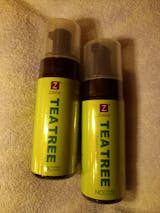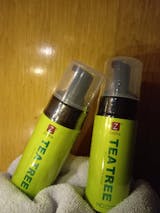DIY Plant-Based Skincare: Crafting Your Own Organic Beauty Products at Home
DIY Plant-Based Skincare: Crafting Your Own Organic Beauty Products at Home
In a world saturated with commercially produced skincare, there's a growing movement towards taking beauty back into our own hands – literally! DIY plant-based skincare offers a unique opportunity to connect with nature, control exactly what goes onto our skin, and craft personalized beauty solutions using organic ingredients right from our own kitchens. Imagine the satisfaction of creating a soothing face mask from ingredients you trust, knowing it's free from synthetic chemicals and tailored to your specific needs.1
If you're intrigued by the idea of becoming your own skincare artisan and want to explore the rewarding world of DIY plant-based beauty, then you've come to the right place. This guide will walk you through the incredible benefits of crafting your own organic skincare at home, provide you with essential recipes, and offer tips for success, along with insights into how brands like Zobha Life, with their focus on natural extracts, can complement your homemade creations.
Why DIY Plant-Based Skincare? The Benefits are Blooming!
Embarking on the DIY skincare journey offers a plethora of compelling advantages:
- Complete Control Over Ingredients: You have the power to choose exactly what you put on your skin, opting for organic, high-quality ingredients and avoiding any substances you wish to steer clear of.
- Say Goodbye to Harsh Chemicals: Homemade skincare allows you to create products free from synthetic preservatives, artificial fragrances, harsh sulfates, parabens, and other potentially irritating or harmful chemicals often found in commercial products.
- Budget-Friendly Beauty: Crafting your own skincare can be significantly more cost-effective than purchasing pre-made organic products, especially when you utilize ingredients you already have on hand.2
- Tailored to Your Unique Skin Needs: You can customize recipes to address your specific skin concerns, whether it's dryness, oiliness, sensitivity, acne, or signs of aging.3
- Experience the Freshness of Nature: DIY skincare often utilizes fresh ingredients, ensuring you're benefiting from their potent properties without the need for long shelf lives and potentially harsh preservatives.
- Embrace Sustainability: By making your own products, you reduce packaging waste and contribute to a more sustainable approach to beauty.
Essential Ingredients for DIY Plant-Based Skincare: Nature's Building Blocks
To get started with DIY plant-based skincare, it's helpful to have a few key ingredients on hand. These versatile components form the foundation of many recipes:
- Carrier Oils: These nourishing oils form the base of many moisturizers and cleansers. Popular options include organic coconut oil, olive oil, jojoba oil, almond oil, and rosehip oil.
- Essential Oils: These concentrated plant extracts offer a wide range of therapeutic benefits and delightful aromas.4 Use them sparingly and always dilute them in a carrier oil. Popular choices include lavender, tea tree, chamomile, and frankincense.
- Hydrosols (Floral Waters): These are the aromatic byproducts of steam-distilling essential oils.5 They make wonderful gentle toners. Rosewater, lavender water, and witch hazel (alcohol-free) are common choices.
- Plant-Based Butters: Shea butter, cocoa butter, and mango butter provide rich moisture and a luxurious feel to creams and balms.6
- Aloe Vera: Known for its soothing, hydrating, and healing properties, aloe vera gel is a versatile ingredient for various skincare needs.7
- Raw Honey: A natural humectant and antibacterial agent, honey is excellent for masks and cleansers.8
- Oats: Finely ground oats are a gentle exfoliant and can soothe irritated skin.9
- Fruits and Vegetables: Many fruits and vegetables, like avocado, cucumber, and berries, are packed with vitamins and antioxidants that benefit the skin.10
- Dried Herbs and Flowers: These can be infused in oils or water to create beneficial extracts for toners, masks, and cleansers.11
Safety Precautions for DIY Skincare: A Little Care Goes a Long Way
While DIY skincare is rewarding, it's crucial to prioritize safety:
- Maintain Hygiene: Always wash your hands thoroughly and sterilize your equipment (bowls, spoons, containers) before making your products.
- Proper Storage: Store your homemade skincare in clean, airtight containers, preferably made of glass.12 Keep them in a cool, dark place or in the refrigerator to extend their shelf life.
- Patch Test: Before applying any new DIY product to your entire face or body, perform a patch test on a small, inconspicuous area of skin (like the inside of your wrist) to check for any allergic reactions or sensitivities. Wait 24-48 hours before using it more widely.
- Understand Ingredient Properties: Research the properties of each ingredient you use, especially essential oils, as some can be irritating or photosensitizing.13 Always dilute essential oils properly.
- Be Mindful of Shelf Life: Homemade skincare products without preservatives have a shorter shelf life than commercial products. Generally, oil-based products last longer than water-based ones.14 Keep an eye out for any changes in color, smell, or texture, and discard the product if it appears spoiled.
DIY Plant-Based Skincare Recipes: Your Homemade Beauty Arsenal
Here are a few simple yet effective DIY plant-based skincare recipes to get you started:
- Gentle Honey and Oil Cleanser: Combine 1 tablespoon of raw honey with 1 teaspoon of your chosen carrier oil (e.g., jojoba for oily skin, almond for dry skin). Gently massage onto damp skin, then rinse with warm water and pat dry.
- Refreshing Cucumber and Mint Toner: Blend half a cucumber with a few fresh mint leaves. Strain the mixture through a fine-mesh sieve or cheesecloth. Store the toner in a clean spray bottle in the refrigerator and use within a week.
- Hydrating Avocado and Honey Face Mask: Mash half a ripe avocado and mix it with 1 tablespoon of raw honey.15 Apply the mask to clean skin and leave it on for 15-20 minutes before rinsing with warm water.
- Gentle Oatmeal and Honey Scrub: Combine 2 tablespoons of finely ground organic oatmeal with 1 tablespoon of raw honey and a little water or milk to form a paste. Gently massage onto damp skin in circular motions, then rinse thoroughly.
- Simple Nourishing Face Oil Blend: Combine 1 tablespoon of your chosen carrier oil (e.g., rosehip for anti-aging, jojoba for balance) with 2-3 drops of your preferred essential oil (e.g., lavender for calming, frankincense for rejuvenation). Apply a few drops to clean, damp skin.
- Soothing Sugar and Coconut Oil Body Scrub with Lavender: Combine 1 cup of organic granulated sugar with ½ cup of melted organic coconut oil and 5-7 drops of lavender essential oil. Mix well and store in an airtight container. Use in the shower to gently exfoliate and moisturize.
- Basic Lip Balm: Melt 1 tablespoon of beeswax pellets with 2 tablespoons of your chosen carrier oil (e.g., almond oil) and 1 tablespoon of shea butter in a double boiler or a heatproof bowl set over simmering water. Once melted, stir well and pour into small lip balm containers. Allow to cool and solidify.
Tips for Sourcing Organic Ingredients: Nature's Goodness at Your Fingertips
Finding high-quality organic ingredients is key to successful DIY skincare:
- Farmers' Markets: Local farmers' markets are a great source for fresh, seasonal, and often organic produce and herbs.16
- Health Food Stores: These stores typically carry a wide range of organic carrier oils, essential oils, butters, and other skincare ingredients.
- Online Retailers: Numerous online retailers specialize in organic and natural skincare ingredients.17
- Check Certifications: Look for certifications like USDA Organic or other recognized organic certifications to ensure the quality of your ingredients.
Storage and Shelf Life of DIY Skincare: Keeping Your Creations Fresh
Homemade skincare products generally have a shorter shelf life than commercial products due to the absence of synthetic preservatives. Here are some guidelines:
- Water-Based Products (e.g., toners, some masks): Store in the refrigerator and use within 1 week.
- Oil-Based Products (e.g., oil cleansers, face oils): Store in a cool, dark place and use within 1-3 months.
- Products Containing Fresh Ingredients (e.g., fruit or vegetable masks): Use immediately or store in the refrigerator for no more than 1-2 days.
Always label your DIY products with the date they were made.
Incorporating Zobha Life into Your DIY Routine: The Best of Both Worlds
Zobha Life's commitment to natural extracts makes their products a wonderful complement to a DIY skincare routine. If you enjoy the control and customization of homemade products but sometimes lack the time or specific ingredients, Zobha Life offers readily available, naturally focused alternatives.
Highlighting Zobha Life Products as Complementary Options
Here are three Zobha Life products that align with the DIY philosophy of using natural ingredients and could be seamlessly integrated into your homemade skincare regimen:
- Zobha Life Cucumber Toner: If you're looking for a simple, refreshing toner but don't have fresh cucumbers on hand, Zobha Life's Cucumber Toner provides the same natural benefits with the convenience of a ready-made product.18
- Zobha Life's Avocado & Shea Butter Moisturizing Lotion (https://zobhalife.com/products/avocado-shea-butter-moisturizing-lotion): For days when you don't have the time to whip up your own moisturizer, this lotion offers a rich and nourishing blend of plant-derived butters and oils, providing a natural and effective alternative.
- Zobha Life's Cleansing Milk with Aloe Vera for Skin Nourishment & Deep Cleansing (https://zobhalife.com/products/cleansing-milk): If you prefer a creamy cleanser but don't have the ingredients for a homemade version, this cleansing milk, infused with soothing aloe vera, offers a gentle and natural way to cleanse your skin.
The Joy and Benefits of Crafting Your Own Beauty: A Labor of Love
There's a unique satisfaction that comes from creating something with your own hands, especially when it's something you use to care for yourself. DIY plant-based skincare is not just about saving money or avoiding chemicals; it's about connecting with nature, understanding what you're putting on your skin, and taking an active role in your well-being.
Conclusion: Unleash Your Inner Skincare Alchemist
The world of DIY plant-based skincare is vast and rewarding. By embracing the power of organic ingredients and a little creativity, you can craft a personalized beauty routine that nourishes your skin, respects the environment, and empowers you to take control of your self-care. Whether you choose to create every product from scratch or complement your homemade creations with thoughtfully formulated natural products from brands like Zobha Life, the journey towards natural beauty is a fulfilling one. So, gather your ingredients, unleash your inner skincare alchemist, and enjoy the radiant results of your homemade organic beauty creations!










